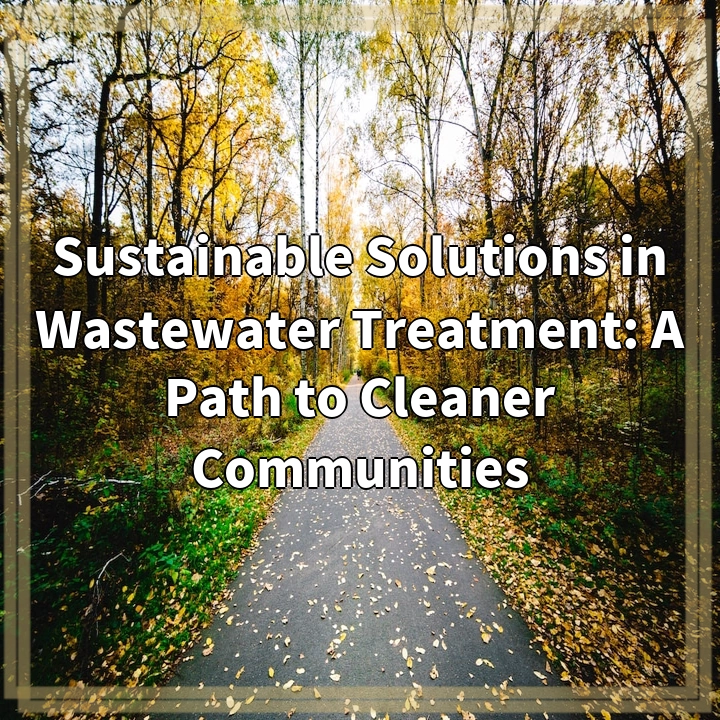Physical Address
304 North Cardinal St.
Dorchester Center, MA 02124
Physical Address
304 North Cardinal St.
Dorchester Center, MA 02124

Wastewater treatment plays a crucial role in ensuring clean and safe water for our communities. It involves the collection, treatment, and disposal or reuse of wastewater from residential, industrial, and commercial sources. To address the real-world problems associated with wastewater treatment, sustainable solutions are being implemented.
There are several pressing issues that need to be addressed to ensure cleaner communities:
Improper or inadequate wastewater treatment can lead to the release of pollutants into rivers, lakes, and oceans, harming aquatic ecosystems and public health. Pollutants such as chemicals, pathogens, and heavy metals in wastewater have long-term environmental repercussions.
Traditional wastewater treatment processes are often energy-intensive, contributing to greenhouse gas emissions. Finding sustainable solutions that reduce energy consumption is crucial for mitigating the environmental impact of wastewater treatment and lowering operational costs.
Water scarcity is a growing concern in many regions. Properly treated wastewater can be a valuable resource for non-potable uses such as irrigation and industrial processes. Promoting water reuse practices and highlighting the benefits of recycled water can help address water scarcity concerns.
Many wastewater treatment facilities worldwide are aging and require upgrades or replacements. Investing in infrastructure improvements and modernization is essential to ensure effective wastewater treatment and the proper functioning of treatment plants.
Meeting and exceeding regulatory requirements for wastewater treatment is crucial to protect human health and the environment. Compliance can be challenging, especially for smaller treatment plants with limited resources. Adhering to regulations prevents legal and environmental consequences.
To address these challenges, several sustainable solutions can be implemented:
Implementing advanced treatment technologies, such as membrane filtration, activated sludge processes, and biological nutrient removal, improves the efficiency and effectiveness of wastewater treatment. These technologies remove a wider range of pollutants, produce higher-quality treated water, and minimize energy and chemical requirements.
Adopting energy-efficient practices significantly reduces the carbon footprint of wastewater treatment. Optimizing pump and blower systems, utilizing renewable energy sources, and implementing energy-saving measures such as process improvements and heat recovery contribute to energy conservation.
Promoting water reuse and resource recovery from wastewater reduces the strain on freshwater sources and supports a circular economy. Treated wastewater can be used for irrigation, industrial processes, and even drinking water in certain cases. Recovering valuable resources like phosphorus and nitrogen from wastewater for use as fertilizers is also beneficial.
Investing in infrastructure upgrades and regular maintenance ensures efficient and reliable wastewater treatment. Repairing aging pipes, renovating treatment plants, and implementing smart monitoring and control systems improve overall system performance, prevent leaks, and reduce energy losses.
Raising awareness about the importance of proper wastewater treatment and the benefits of sustainable solutions is essential for widespread adoption. Public education campaigns, community engagement initiatives, and capacity-building programs play a vital role in changing behaviors, promoting responsible water use, and encouraging support for sustainable wastewater treatment practices.
By implementing these sustainable solutions, we can achieve cleaner communities, protect the environment, and ensure the availability of clean and safe water for generations to come.
If you’re wondering where the article came from!
#